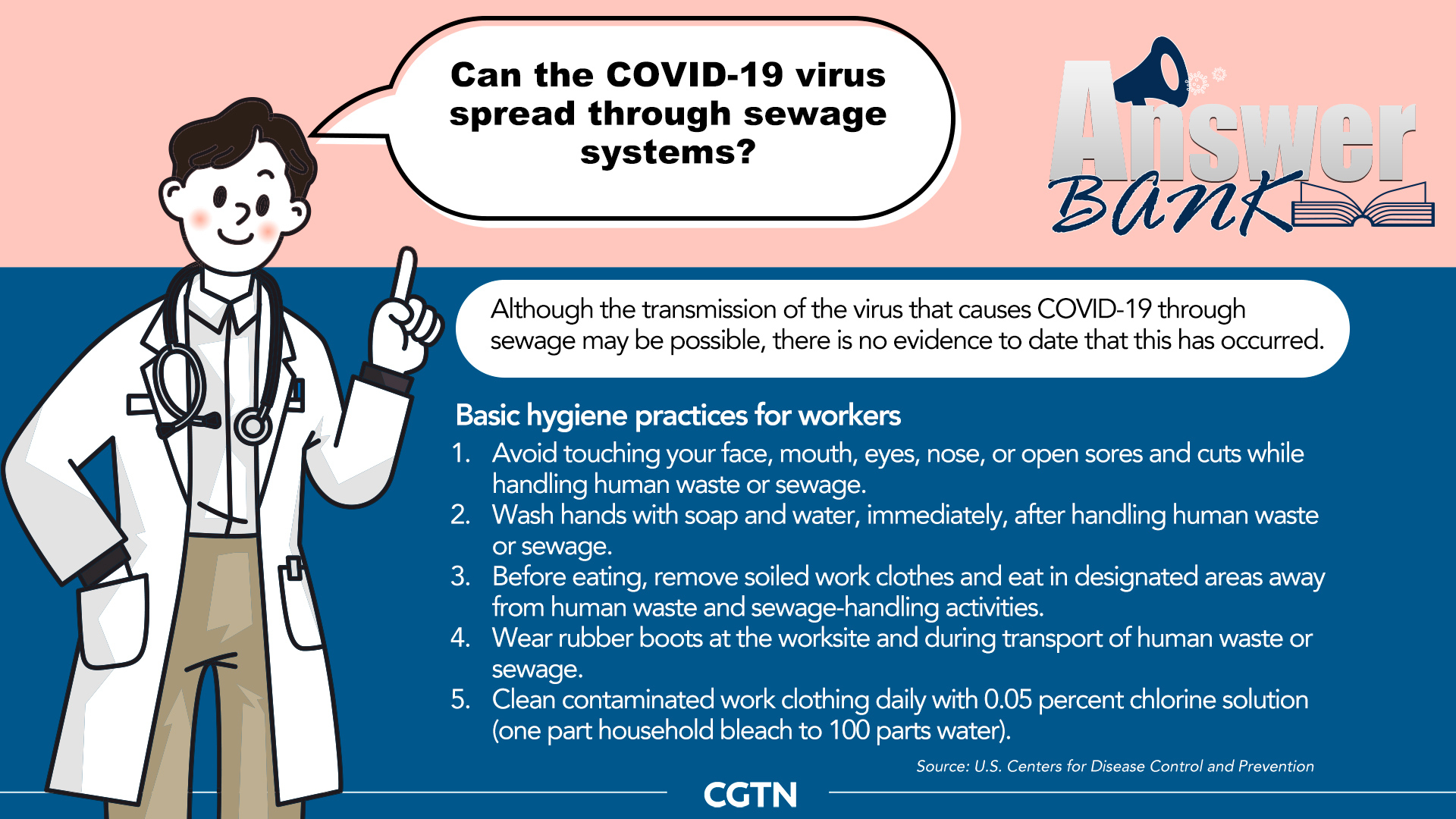
To the best of current scientific knowledge, the virus that causes COVID-19 can survive in sewage for weeks. This has raised questions over the possibility of the virus contaminating rivers, and the consequent impacts on people and environment.
A recent scientific study showed that by sampling sewage across greater Paris for more than one month, researchers have detected a rise and fall in novel coronavirus concentrations that correspond to the shape of the COVID-19 outbreak in the region, where a lockdown is now in place to curb the spread of the disease. But U.S. Centers for Disease Control and Prevention (CDC) stated although the transmission of the virus that causes COVID-19 through sewage may be possible, there is no evidence to date that this has occurred.
However, workers who handle human waste or sewage may be at increased risk of becoming ill from waterborne diseases and COVID-19. To reduce the risks, the following basic guidance should be followed by workers:
1. Avoid touching your face, mouth, eyes, nose, or open sores and cuts while handling human waste or sewage.
2. Wash hands with soap and water, immediately, after handling human waste or sewage.
3. Before eating, remove soiled work clothes and eat in designated areas away from human waste and sewage-handling activities.
4. Wear rubber boots at the work site and during transport of human waste or sewage.
5. Clean contaminated work clothing daily with 0.05 percent chlorine solution (one part household bleach to 100 parts water).
In addition, it's better for workers to promptly seek medical care if showing any signs or symptoms of diarrhea, such as vomiting, stomach cramps and watery diarrhea.
(Cover image designed by Sa Ren)